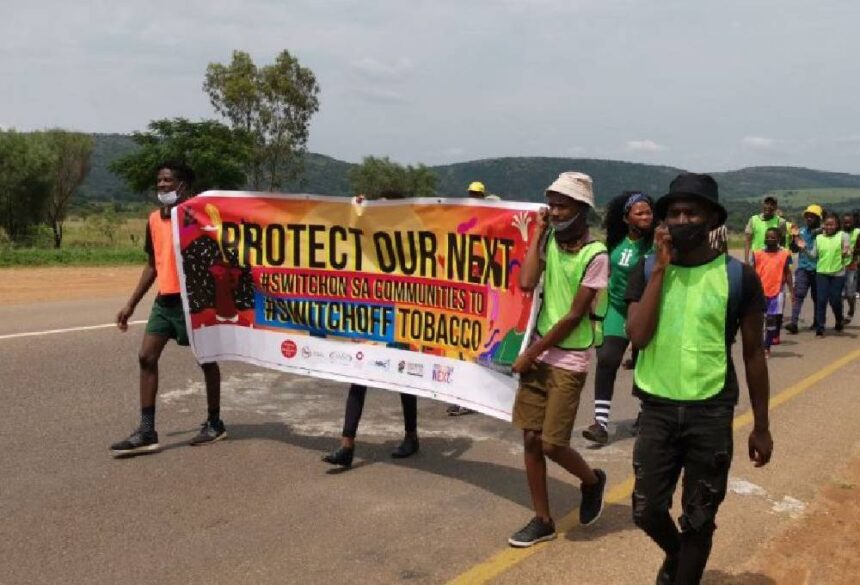The 20th anniversary of the World Health Organisation (WHO) Framework Convention on Tobacco Control (FCTC) coming into force is a significant milestone in global health progress. The FCTC has been one of the most rapidly and widely embraced treaties in United Nations history since its adoption in 2005. Countries around the world have united in implementing policies to combat the tobacco epidemic, focusing on measures like tobacco advertising bans, taxation, and public smoking restrictions.
South Africa, as one of the first signatories to the FCTC in 2003, has made significant progress in implementing tobacco control measures. The country has used tobacco taxation as a tool to discourage smoking and promote public health. In recent years, excise taxes on Heated Tobacco Products and electronic cigarettes (e-cigarettes) have been introduced by the Department of Finance. These measures, coupled with other strong tobacco control strategies, have led to a noticeable decline in smoking prevalence over the years.
However, there is still much work to be done. The Tobacco Products and Electronic Nicotine Delivery Systems Control Bill is currently under consideration and aims to align with South Africa’s FCTC commitments. There is a critical opportunity for the government to prioritize public health by raising tobacco taxes above inflation in the upcoming budget speech on 12 March.
Emerging challenges, such as the rise of new tobacco products and persistent industry interference, threaten progress in protecting global health. Combining robust taxation policies with comprehensive tobacco control strategies is crucial for addressing both the economic and public health impacts of tobacco use.
South Africa has a history of strong leadership and political commitment to tobacco control. The country implemented tobacco control legislation even before the adoption of the FCTC, with measures such as banning tobacco advertising, classifying nicotine as an addictive drug, restricting smoking in public spaces, and raising excise taxes on cigarettes. These efforts have been recognized internationally, with South Africa receiving a Luther Terry award for excellence and leadership in tobacco control in 2001.
Data from Global Youth Tobacco Surveys and market surveys show sustained reductions in cigarette consumption in South Africa over the years. However, the country still faces challenges, such as high exposure to second-hand smoke and high tobacco prevalence among adults. Ongoing policy interventions are essential to further reduce tobacco consumption and protect public health.
The new Tobacco Products and Electronic Delivery Systems Control Bill aligns with the requirements of the FCTC by incorporating stricter advertising and promotion restrictions, enhanced packaging and labeling regulations, and strengthened public smoking bans. These measures demonstrate South Africa’s commitment to reducing tobacco use and safeguarding public health through evidence-based, global strategies.
In the past seven years, a partnership of leading health, research, and community organizations in South Africa has advocated for stronger tobacco control under the banner of Protect Our Next. This collective effort aims to mobilize South Africans to support the passage of the Bill and fulfill the country’s FCTC commitments. With continued dedication and collaboration, South Africa can make further progress in combating the tobacco epidemic and protecting the health of its population. Our partnership, Protect Our Next, is a powerful coalition consisting of the South African Medical Research Council (SAMRC), the National Council Against Smoking (NCAS), the Cancer Association of South Africa (CANSA), the South African Tobacco Free Youth Forum (SATFYF), and the Africa Centre for Tobacco Industry Monitoring and Policy Research (ATIM). Together, we are joining forces to build a united front against the tobacco industry, sending a resounding message that the people of South Africa are in full support of the new bill aimed at reducing the devastating impact of tobacco-related diseases on public health.
The tobacco industry has long been a formidable force, aggressively marketing and selling products that have been proven to cause serious health issues, including cancer, heart disease, and respiratory ailments. The burden of tobacco-related illnesses on our healthcare system is immense, placing a strain on resources and costing lives. By standing together in support of this bill, we are taking a crucial step towards saving lives and improving the overall health of our nation.
The proposed legislation includes measures such as increased taxes on tobacco products, stricter regulations on advertising and marketing, and the implementation of plain packaging to reduce the appeal of cigarettes to young people. These steps are essential in curbing the tobacco epidemic and preventing future generations from falling prey to the harmful effects of smoking.
As a partnership dedicated to safeguarding the health and well-being of all South Africans, we are committed to advocating for the passage of this bill and ensuring its successful implementation. We urge the public to join us in saying yes to this vital legislation, as it represents a significant opportunity to protect our next generation from the grip of the tobacco industry.
Together, we can make a difference and create a healthier, smoke-free South Africa for all. Let’s unite against the might of the tobacco industry and pave the way for a brighter, healthier future for our nation. Say yes to this bill and let’s save lives together.








